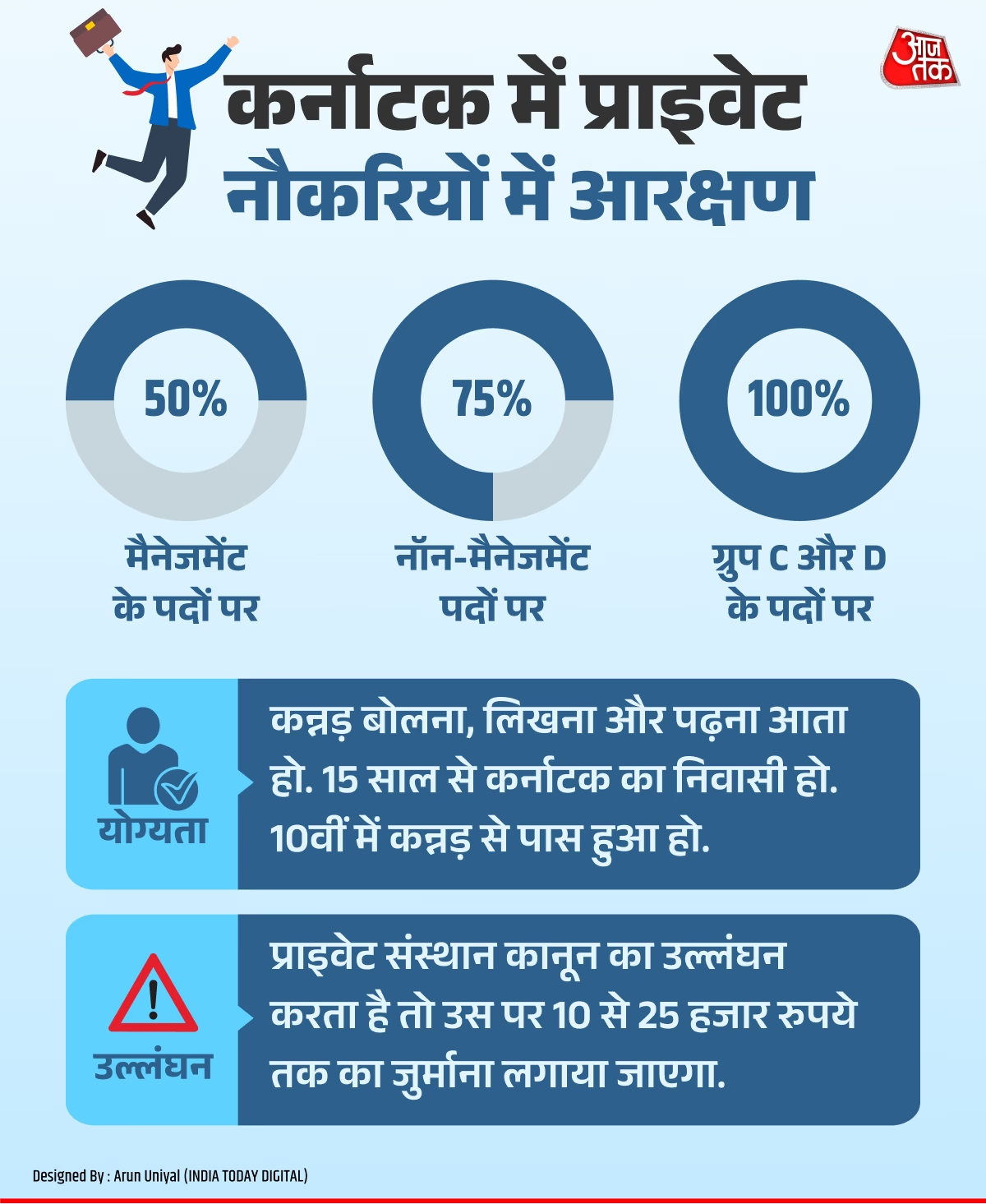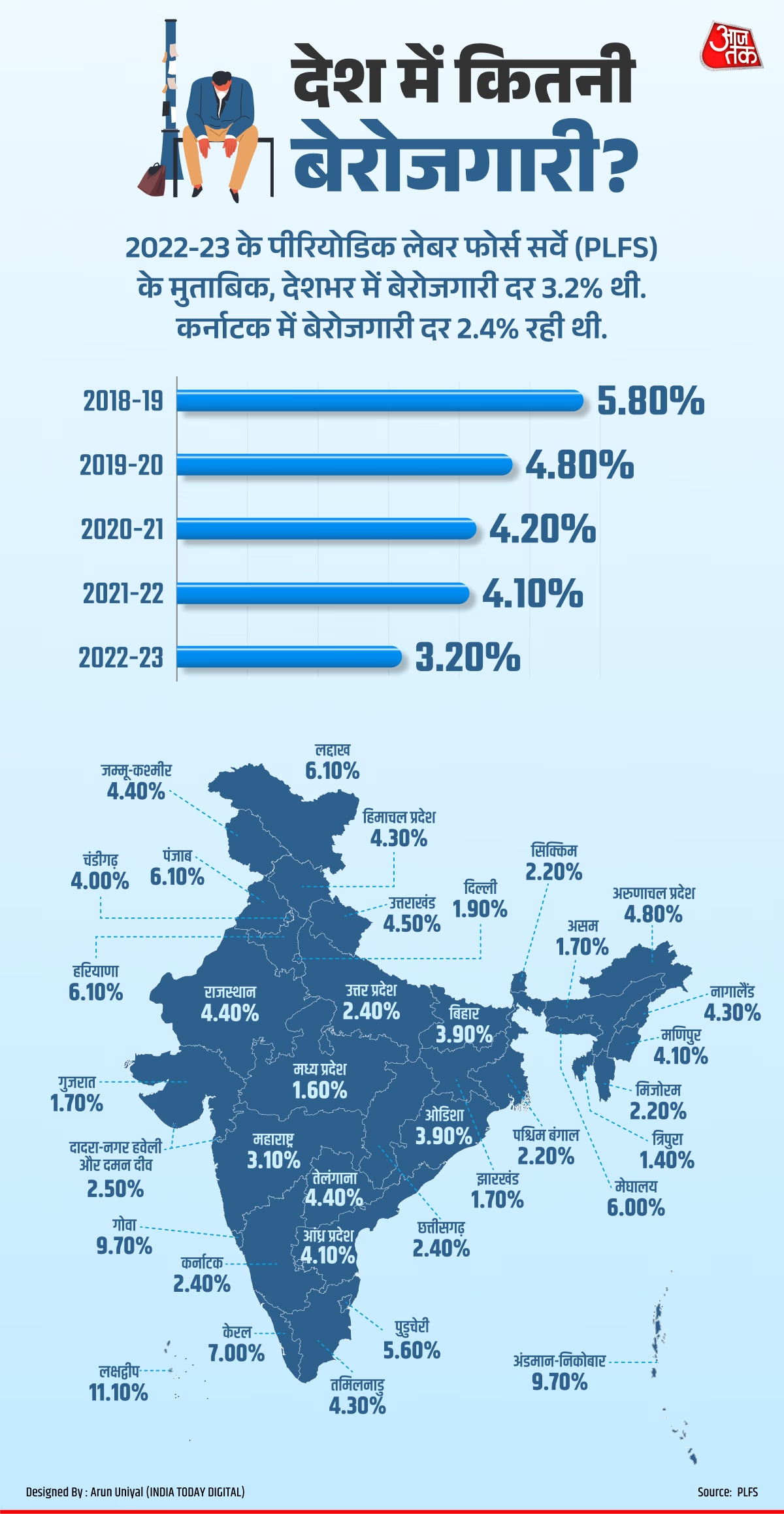Is it feasible to reserve jobs in the private sector? Our Constitution does not seem to permit this. Yet, state governments often make attempts despite numerous constitutional challenges, with the latest example being Karnataka, where the Siddaramaiah government is attempting to implement a job reservation system.
The Karnataka government introduced a new bill, which received cabinet approval. If this bill were enacted, private companies doing business in Karnataka would be required to reserve 50% to 100% of jobs for Kannada speakers. However, the implementation of this bill has been currently put on hold.
Chief Minister Siddaramaiah says, 'We are a pro-Kannada government, and our priority is to care for the welfare of Kannadigas.'
The debate sparked as industry leaders expressed concerns, suggesting the government focus on skill development instead of imposing a reservation system. The Deputy CM of Karnataka, DK Shivakumar, defended the move, stating that the Congress came into power in Karnataka to maintain the dignity of the Kannada people.

Source: aajtak
What was the bill introduced by the Karnataka government?
The bill, named 'Karnataka State Employment of Local Candidates in Industries, Factories and Other Establishments', aimed to reserve jobs for locals in private companies. It would comprehensively include all industries, factories, and private institutions, making reservations for local employment mandatory.
Upon becoming a law, private job positions at the managerial level would have 50% reserved seats, and non-managerial positions would have 75% for local candidates. Additionally, for positions in categories 'C' and 'D', 100% recruitment would be designated for locals.
The bill defines a local as someone who can speak, write, and understand Kannada, and has resided in Karnataka for at least 15 years. If a local has not passed the 10th grade in Kannada, they would be required to pass the Karnataka Proficiency Test.
If a company or manager violates this law, they would face fines ranging from 10,000 to 25,000 rupees.
However, when controversy flared, the Karnataka government paused the bill, stating that they will reconsider and revise it before reintroducing it.

Source: aajtak
Where else have similar efforts been made?
- Andhra Pradesh:
In 2019, Andhra Pradesh passed a law reserving 75% of private jobs for locals, a first of its kind in the nation. However, the High Court deemed it unconstitutional and the case is now with the Supreme Court.
- Maharashtra:
Following the formation of the coalition government of Shiv Sena, Congress, and NCP in 2019, there was a proposal to reserve 80% of private jobs for locals. Although intended to be presented in the assembly, it was never tabled.
- Karnataka:
There have been several attempts to reserve private jobs for Kannadigas. This bill marks the third time under the Siddaramaiah government such an attempt has been made, with previous attempts in 2014 and 2017. In October 2020, the BJP government under Yediyurappa made an announcement to reserve 75% of Group 'C' and 'D' private jobs for locals, a move that never materialized.
- Telangana:
In August 2020, the Telangana cabinet approved reserving 80% of semi-skilled private sector jobs and 60% of skilled private sector jobs for locals. Later, the government withdrew the bill.
- Madhya Pradesh:
In 2019, the then-Congress government passed a law reserving 70% of private industry jobs for locals, which was never implemented due to the subsequent fall of the government and the rise of the BJP. No further discussions ensued post-transition.
- Haryana:
In 2020, the government led by Manohar Lal Khattar passed a law to reserve 75% of private jobs for locals. This was challenged in the High Court which, in November last year, declared the law unconstitutional.
- Jharkhand:
In December 2023, Hemant Soren's government passed a bill to reserve 100% of group 3 and 4 government jobs for locals. The bill was approved in the assembly but was returned by the governor.




